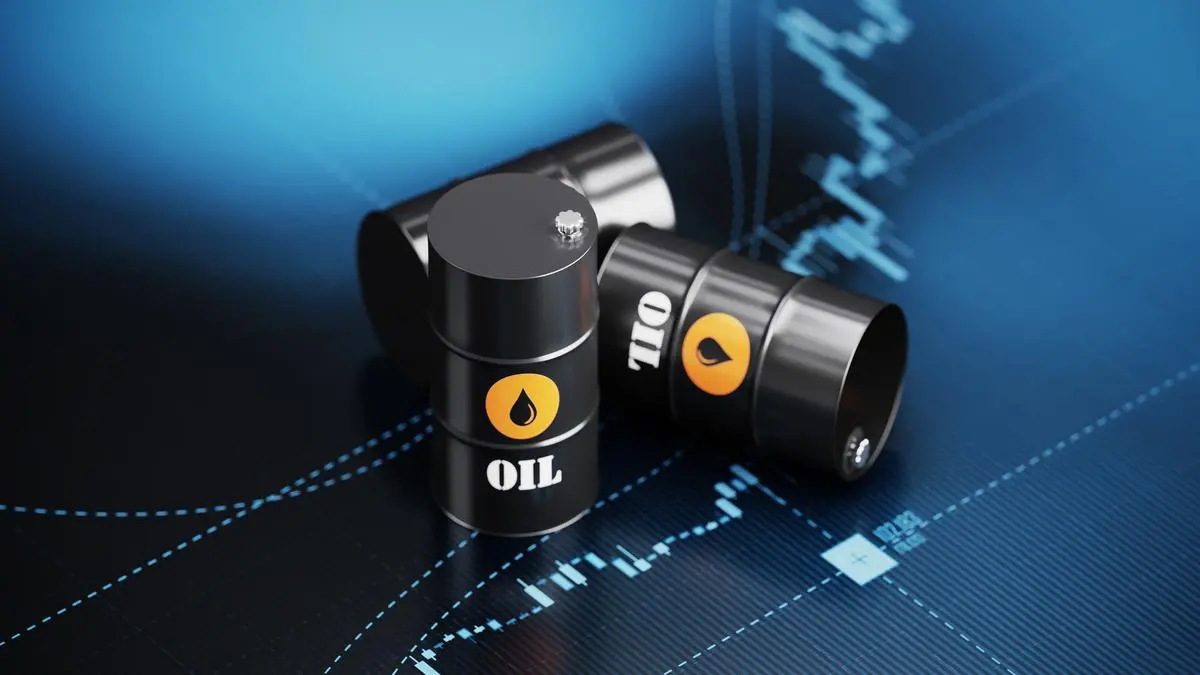
Last week, EU approved its 18th round of sanctions on Russian crude oil exports.
Crude oil futures traded higher on Monday morning after new sanctions by the European Union (EU) on Russia raised concerns about possible disruptions in global supply.
At 9.32 am on Monday, September Brent oil futures were at $69.36, up by 0.12 per cent, and September crude oil futures on WTI (West Texas Intermediate) were at $66.18, up by 0.20 per cent. July crude oil futures were trading at ₹5,816 on Multi Commodity Exchange (MCX) during the initial hour of trading on Monday against the previous close of ₹5,798, up by 0.31 per cent, and August futures were trading at ₹5,723 against the previous close of ₹5,707, up by 0.28 per cent.
Last week, EU approved its 18th round of sanctions on Russian crude oil exports. This included an import ban on products processed from Russian crude oil in other countries.
In their Commodities Feed for Monday, Warren Patterson, Head of Commodities Strategy of ING Think, and Ewa Manthey, Commodities Strategist, said the sanctions included lowering the oil price cap for Russian crude from $60 a barrel to $47.60 a barrel. It will come into force on September 3. The cap is set to be more dynamic at 15 per cent below the average market price for Urals crude oil in the previous six months. It will be reviewed every six months, and won’t change if the price movement over the reference period is less than 5 per cent.
“It’s important to point out that while the EU has lowered the price cap, the G-7 cap remains unchanged. The EU would need to get the US on board to lower the cap. The issue is that the G-7 price cap has not been effective, given that Russia built up a shadow fleet of oil tankers to get around it. The EU has also sanctioned another 105 vessels, leaving a total of 444 vessels in Russia’s shadow fleet affected. The lack of reaction shows that the market is not convinced by the effectiveness of these sanctions,” they said.
However, the Commodities Feed said, the part of the package likely to have the biggest market impact is the EU imposing an import ban on refined oil products processed from Russian oil in third countries.
Stating that the EU imports sizeable volumes of middle distillates from India and Turkey, the analysts said India and Turkey make up roughly 15 per cent of the EU’s total seaborne diesel imports. This measure, if implemented effectively, will lead to further tightening in the European middle distillates market, a market which has already been showing clear signs of tightness.
“The European Commission is yet to release full details on how this ban will work. But clearly, it will be challenging to monitor crude oil inputs into refineries in these countries and, as a result, enforce the ban,” they said in the Commodities Feed.
On Sunday, the US Commerce Secretary Howard Lutnick expressed confidence that the US could secure a trade deal with EU. In an interview to ‘Face the Nation’ programme of CBS, he said: “These are the two biggest trading partners in the world, talking to each other. We’ll get a deal done. I am confident we’ll get a deal done.” Though he made it clear that August 1 is the deadline to start paying reciprocal tariffs, he also noted that negotiations could continue even after that date. It is worth noting that issues related to US trade tariffs have been affecting crude oil market movements.
July natural gas futures were trading at ₹293.10 on MCX during the initial hour of trading on Monday against the previous close of ₹303.50, down by 3.43 per cent.
On the National Commodities and Derivatives Exchange (NCDEX), August dhaniya contracts were trading at ₹7,706 in the initial hour of trading on Monday against the previous close of ₹7,640, up by 0.86 per cent.
August turmeric (farmer polished) futures were trading at ₹13,250 on NCDEX in the initial hour of trading on Monday against the previous close of ₹13,352, down by 0.76 per cent.
Published on July 21, 2025
